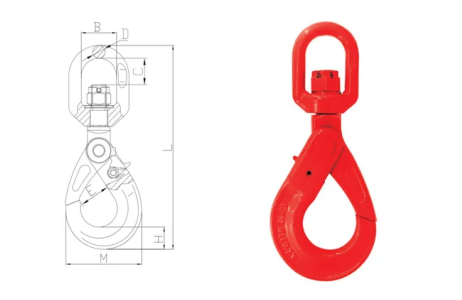News
Jul . 27, 2024 17:00 Back to list
Reliable Supplier Offering High-Quality Rigging Cables for Various Industrial Applications and Needs
The Importance of Reliable Rigging Cables and Suppliers
In various industries—from construction to maritime operations—the importance of reliable rigging cables cannot be overstated. Rigging cables are essential components that facilitate the safe lifting, securing, and transporting of heavy loads. Therefore, choosing a trustworthy supplier for rigging cables is crucial in ensuring both safety and efficiency in any operation.
Understanding Rigging Cables
Rigging cables, often referred to as wire ropes, are manufactured from strands of wire that are twisted together, providing strength and flexibility. These cables are used in a multitude of applications, including cranes, hoisting systems, and the rigging of sails in nautical environments. One of the key factors that differentiate rigging cables is their construction, which determines their load capacity, flexibility, and resistance to various environmental factors like corrosion and abrasion.
Key Considerations in Selecting Rigging Cables
When selecting rigging cables, several factors should be considered
1. Load Capacity Different applications require different load capacities. It is vital to choose a cable that meets or exceeds the weight requirements of the intended load. Overloading a rigging cable can lead to failures and catastrophic accidents.
2. Material Rigging cables can be made from various materials, including steel, synthetic fibers, and specialized alloys. Each material has its benefits and drawbacks in terms of strength, weight, and resistance to environmental factors.
3. Flexibility and Handling Depending on the nature of the operation, the flexibility of the cable might play a significant role in its usability. A more flexible cable is often easier to handle and less likely to cause kinks or twists.
rigging cables supplier

4. Environmental Resistance In some situations, rigging cables may be exposed to harsh conditions such as saltwater, chemicals, or extreme temperatures. Choosing a cable with adequate resistance to these factors can prolong its lifespan and ensure safety.
The Role of Suppliers
Choosing the right supplier for rigging cables is equally important. A reputable supplier should have a proven track record of quality and reliability. Here are some critical aspects to look for in a rigging cable supplier
1. Quality Assurance Suppliers should offer products that comply with industry standards and regulations. This can often be confirmed through certifications and testing reports.
2. Variety of Options A good supplier will provide a range of products that cater to different applications. This variety allows customers to find the perfect rigging cable for their specific needs.
3. Customer Support A knowledgeable supplier should provide excellent customer service, offering guidance in selecting the right products and addressing any concerns or questions.
4. Reputation Researching a supplier’s reputation can offer insight into their reliability. Customer reviews, testimonials, and industry references are all valuable sources of information.
Conclusion
In conclusion, the proper selection of rigging cables and their reliable suppliers is fundamental to ensuring safety and efficiency in operations involving heavy lifting. By considering critical factors such as load capacity, material, and environmental resistance, and by choosing a reputable supplier, businesses and operators can significantly mitigate risks and enhance productivity. Investing time and resources in securing the right rigging cables from trusted suppliers is not just a matter of operational efficiency but a crucial aspect of ensuring safety in potentially hazardous conditions. Therefore, when it comes to rigging cables, make informed choices that lead to a secure and successful operation.
